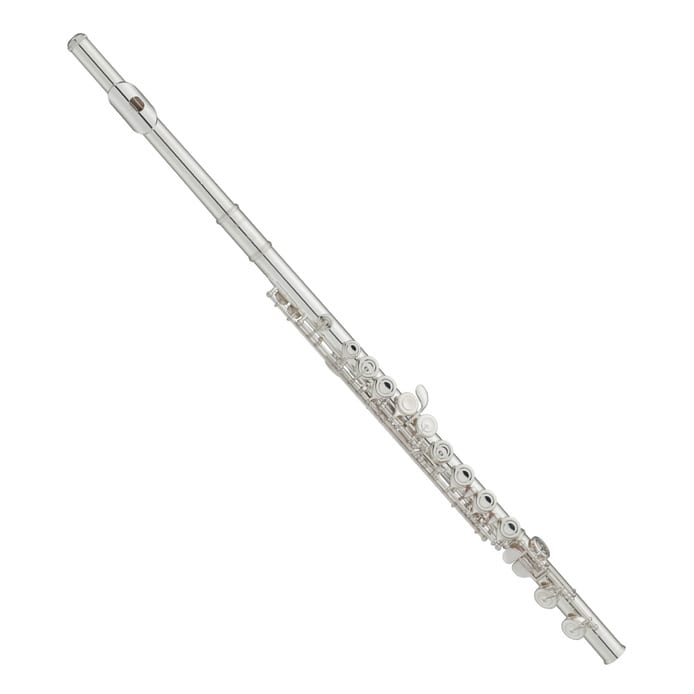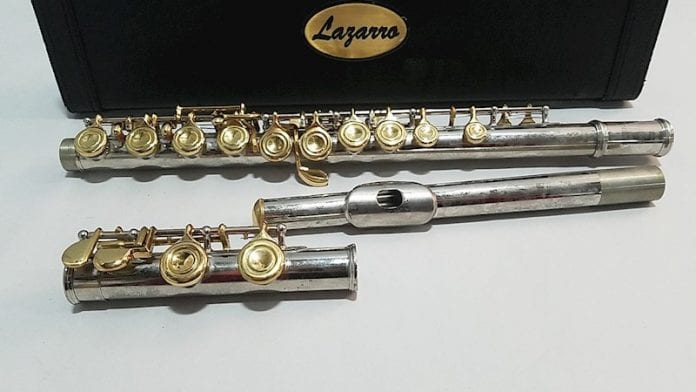Playing the flute can be fun and exciting! As a beginner, you want to learn the basic foundation, but it comes down to more than just learning how to play an instrument.
While there are many courses you can take, and workshops you can attend, there are some basic tips every flute player should use.
Today, this blog post is going to review some basic tips for beginning flute players. There will also be some tips included for the most advanced flute player.
Basic Tips for Every Flute Player
The first step for each flute player is to purchase a good-quality flute. You won’t need to break the bank when you choose from this updated list of flutes for beginners and professionals:
- LJ Hutchen 4215II Mark II Silver Plated Flute
- Yamaha-YFL 222 Student Flute
- Lazarro Professional Silver Nickel Closed Hole C Flute for Band, Orchestra, with case, Care Kit and warranty 120-NK
The LJ Hutchen Flute is a great option for beginners because it starts with a modest price point. The manufacturer also takes pride in improving upon their quality as they continue to manufacture high-quality flutes for the best value.
The Yamaha-YFL 222 student flute is another great option for the beginner and the intermediate flute player.

Lazarro is a great option for beginners because it’s one of the most affordable. It’s not breaking the bank to give it a try and get started. This flute is made from cupronickel to reduce the cost.
The second best tip for beginning flute players is to properly learn how to assemble your flute.
Upon opening your case, you’ll find that the flute is divided into three parts. You’ll note the mouthpiece and two other connecting parts.
You can clean these with a long rod and soft cloth that most likely came with the flute. You’ll want to clean your instrument after every use.
Make sure that all three pieces are properly connected to ensure proper form and sound.
Thirdly, a great tip is to find a flute teacher. A flute teacher is ideal for helping you learn the basic steps of playing the flute, as well as taking care of your flute.
Your teacher will also continue to work with you on your form, as well as to blow air into the mouthpiece to create sound.

Those who are seeking a teacher for beginners may wish to seek out a college student that can offer lessons for less money.
The fourth tip that is essential for beginners and professionals is mouth exercises. There are specific mouth exercises that can help you strengthen the muscles in your mouth and lips to create the perfect airflow to play your flute.
The fifth great tip for beginning and professional flute players is to practice on a daily basis. Gaining new skills in anything requires dedication to hours of practice.
Playing the flute requires dedication to working on the proper posture as well as a form on holding your flute, and proper form with your lips for sound.
The sixth great tip for beginners and professionals is to play for an audience. Playing in front of others is a great way to break yourself of feeling nervous or anxious while performing.
You can play in front of family and friends, as well as your church.
The seventh tip I’d like to share with you is to study theory in music. Theory is a great way to learn more about what you play and why.
The theory is a way to understand the feeling and intention behind a piece of music that was written. This can change your mood as you get into the piece you play.
Our eighth tip is to take care of your flute. There are several steps you can take to make sure your flute is taken care of.
Make sure that you get your flute checked out at a music store by a professional. They will take a look at the pads in your flute to ensure they are in working condition.
Your keys may need to be oiled as well. Proper maintenance of your flute is essential to keep it clean and in working order for many years to come.

Last but not least, you should enjoy yourself when playing your flute.
Flute players that wish to gain valuable experience and continue to improve their skills may consider playing in a concert band or orchestra.
Playing in a group where you can learn more and play a wider variety of pieces will give you more experience and help you to improve your flute playing skills.
You will also learn from more experienced flute players that are willing to share their own personal tips with you.
Nothing worth doing is ever easy, and the same is true about playing the flute. Learning to play this beautiful instrument is well worth the time spent.
May playing the flute bring you joy in the years to come!









